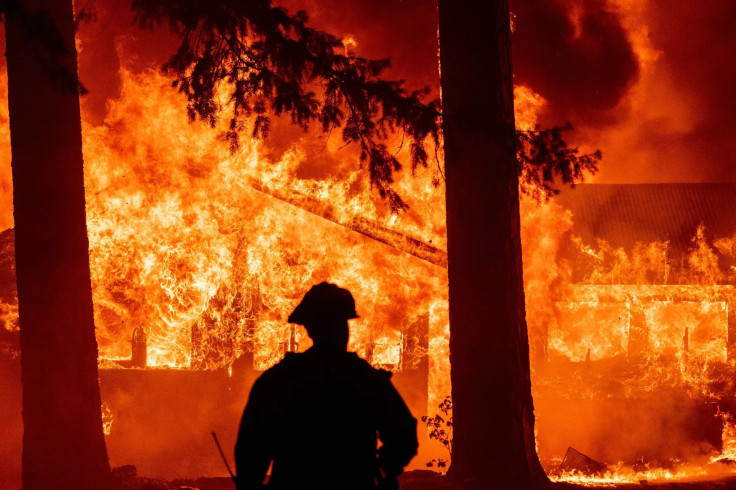Outrage As LA Millionaires Pay Up To $10,000 Daily For Private Firefighters To Protect Their Homes
The Hollywood elite use their large swimming pools as water sources while hundreds die due to water crisis.

As wildfires ravage Los Angeles, engulfing over 12,000 homes and claiming 24 lives thus far, a growing divide between the wealthy and the working class has sparked widespread outrage.
Amid this devastation, affluent homeowners have been hiring private firefighting services at costs as high as £8,200 ($10,000) per day to safeguard their mansions, fuelling debates about privilege, resource allocation, and the ethics of fire protection.
Private Firefighters in High Demand
Private firefighting firms, typically contracted by insurance companies, have seen a surge in direct requests from desperate wealthy homeowners. According to Chris Dunn, owner of Covered 6, a private firefighting firm, calls have been "ringing off the hook," with homeowners offering exorbitant sums to save their properties.
The cost of hiring these services varies widely, with a two-person crew charging approximately £2,500 ($3,000) daily and larger teams demanding up to £8,200 ($10,000). Firms often draw water from clients' swimming pools, especially as fire hydrants across the city run dry.
However, the presence of private firefighters has ignited concerns among critics, who argue that these teams deplete critical resources and disrupt the efforts of government-employed emergency responders.
Public Backlash
The issue of private firefighting came to a head when Keith Wasserman, a wealthy LA-based entrepreneur and co-founder of Gelt Venture Partners, took to X (formerly Twitter) seeking private firefighters to protect his Pacific Palisades home. His post, in which he pledged to "pay any amount" to save his property, was met with a barrage of criticism online.
One user likened Wasserman's mindset to hoarding during a famine, while others lambasted his lack of empathy for neighbours whose homes had already been reduced to ashes. Wasserman has since deactivated his X account following the backlash.
Adam Leber, a prominent Hollywood talent manager, faced similar scrutiny when he disclosed that his £6,000 ($7,500) annual retainer with All Risk Shield ensured his private firefighters were on hand to protect his 6,000-square-foot Hollywood Hills mansion. Defending his actions, Leber claimed his team used only his private water sources, including a swimming pool, to avoid draining public hydrants.
A History of Controversy
This is not the first time the wealthy have turned to private firefighting services. In 2018, Kim Kardashian and Kanye West faced criticism after hiring private firefighters to save their £40 million mansion during the Woolsey wildfire. Some neighbours defended the couple, stating their actions indirectly saved surrounding homes by creating firebreaks.
Nonetheless, public sentiment has shifted, with many now viewing such actions as emblematic of systemic inequality. Critics argue that the wealthy are afforded an additional layer of security unavailable to most, exacerbating societal divides in the face of shared disasters.
Industry Challenges
The increasing reliance on private firefighters has drawn sharp criticism from union leaders. Brian Rice, president of California Professional Firefighters, expressed concerns over the training and coordination of private crews, who are often inexperienced in urban firefighting scenarios.
State regulations implemented in 2018 have further restricted private crews, banning the use of emergency sirens and vehicles resembling official fire engines. Despite these measures, critics argue that the presence of private teams can complicate emergency responses.
Celebrities Lose Homes to Wildfires
While some wealthy homeowners have successfully protected their properties, many high-profile figures, including Paris Hilton, Mel Gibson, and Sir Anthony Hopkins, have not been as fortunate. Their homes now stand among the 12,000 structures consumed by the wildfires.
As LA grapples with worsening wildfires, the growing use of private firefighting services calls into question how resources should be distributed to address shared threats effectively and ethically.
© Copyright IBTimes 2025. All rights reserved.






















